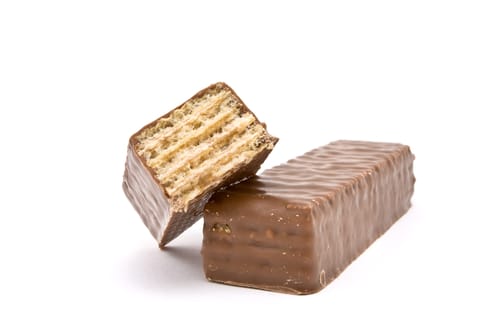 There are tons of products on store shelves that cater to the person on a diet. These products are usually labeled as low-calorie foods or low-fat. In hopes of losing weight, some people stock up on these items, making them part of their diet plan to lose body fat. After congratulating themselves on making a “healthier” choice, they take their new low-calorie foods home to begin their new diet. Smart or not?
There are tons of products on store shelves that cater to the person on a diet. These products are usually labeled as low-calorie foods or low-fat. In hopes of losing weight, some people stock up on these items, making them part of their diet plan to lose body fat. After congratulating themselves on making a “healthier” choice, they take their new low-calorie foods home to begin their new diet. Smart or not?
The Problem with Low-Calorie Foods
To make the commitment to lose weight is commendable, and calories are an important part of the equation – but they’re not the full story. There’s a big difference between foods that have a low-calorie label slapped on the package and those that are naturally low in calories. The former typically comes in a package, contains additives and has been highly processed to make it taste good despite its lack of calories. What manufacturers of low-calorie products add to these products to enhance their flavor are salt, sugar, and fillers to fill you up without calories. You’ll typically find a long ingredient list full of ingredients that are hard to pronounce.
Then there are naturally low-calorie foods, including most vegetables and many fruits, beans, lentils, fish and other foods that come from nature, not a manufacturing plant. Chances are you’ll have more success losing weight eating these foods. Here’s why.
Low Calorie – High Sugar?
When you eat processed foods with added sugar, regardless of how many calories are in it, you create an environment that favors fat storage. That’s because these foods are typically low in fiber, contain added sugar and cause a rapid rise in blood glucose and insulin. When insulin levels spike, insulin hangs around in your system too long, making it almost impossible to break down fat stores.
To top it off, these foods are usually not very filling or satisfying, meaning you’ll head back to the kitchen for more. How many times have you really felt satisfied eating a single serving of a fat-free, low-calorie cookie or brownie?
Another Reason Why Low-Calorie Foods Don’t Always Lead to Weight Loss
Because you probably won’t feel satisfied with just one serving of a packaged, low-calorie food, you’ll feel entitled to help yourself to a second serving. After all, it is low in calories. Surely it won’t cause weight gain – or will it?
Here’s one for you. One study showed that when foods have a “low-fat” label, people eat up to 50% more. Many people also overestimate serving size when they eat packaged food. After all, are you really going to take the time to weigh it out? It’s important to be able to visualize what a serving size looks like and with so much “biggie size” out there, people have lost touch with how much they should be eating. Reacquaint yourself with what a single serving should look like.
Eating Low-Calorie Packaged Foods Makes It Harder to Appreciate the Taste of Whole Foods
When you’re constantly munching on low-calorie packaged foods, you don’t get the chance to develop an appreciation of whole foods that are naturally good for you and are also low in calories. Begin adding whole foods to your diet and cutting back on low-calorie packaged foods. Do it a little at a time if your taste buds aren’t ready to accept the change.
Enhance the flavor of these foods with spices. Spices, particularly hot ones, help to reduce the amount you eat too – and they’re a good source of antioxidants. As you cut back on processed foods over time, you’ll feel fewer cravings for them and will ultimately feel better and have an easier time losing weight. When you visit the grocery store next, skip the aisles with the low-calorie chips, the low-fat cookies, and fat-free ice cream. See how many foods you can buy that aren’t packaged or have a very short ingredient list.
The Bottom Line?
Low-calorie isn’t necessarily better, especially when it comes in a package. Rediscover the taste of whole foods and plan them into your diet. After all, aren’t you losing weight for your health as well as your waistline? Make sure the choices you make are healthy ones.
References:
Cornell Food and Brand Lab. “The Health Halo: How low–fat foods can actually make you fatter”
Related Articles By Cathe:
5 of the Worst Ingredients in Processed Foods

